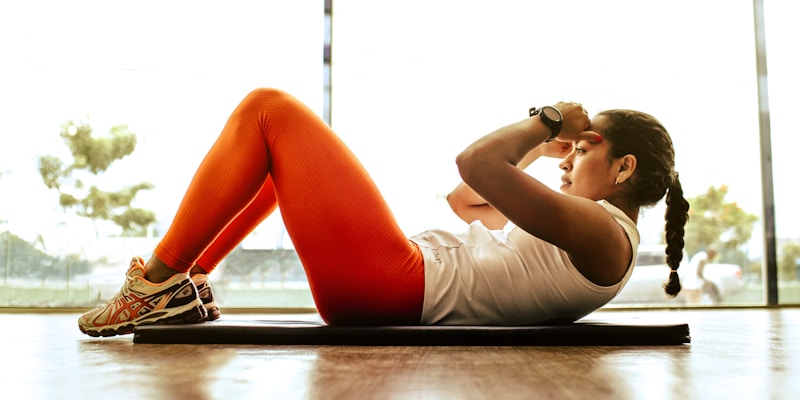
Overview
Regular physical activity is one of the most powerful medicines available to us. It's a natural prescription for better health that doesn't require a pharmacy visit or insurance approval. The science is clear: incorporating daily exercise into your routine can transform your physical health, boost your mental wellbeing, and significantly improve your quality of life.
Whether you're a complete beginner or someone looking to optimize your current fitness routine, understanding the comprehensive benefits of exercise can provide the motivation you need to make lasting changes. From strengthening your heart to sharpening your mind, daily movement offers rewards that extend far beyond the obvious physical improvements.
Physical Health Benefits
Cardiovascular Health
Exercise is like a tune-up for your heart. Regular aerobic activity strengthens your heart muscle, making it more efficient at pumping blood. This leads to lower resting heart rate, reduced blood pressure, and improved circulation throughout your body. Studies show that people who exercise regularly have a 30-35% lower risk of heart disease compared to sedentary individuals.
Weight Management
Daily exercise helps maintain a healthy weight by burning calories and building lean muscle mass. Muscle tissue burns more calories at rest than fat tissue, meaning regular strength training can boost your metabolism even when you're not actively exercising. This creates a positive cycle where exercise becomes more effective over time.
Bone and Muscle Strength
Weight-bearing exercises and resistance training stimulate bone formation and help prevent osteoporosis. As we age, we naturally lose muscle mass and bone density, but regular exercise can slow or even reverse this process. Strong muscles and bones also improve balance and coordination, reducing the risk of falls and fractures.
Disease Prevention
Regular exercise significantly reduces the risk of developing chronic diseases including type 2 diabetes, certain cancers, and stroke. It helps regulate blood sugar levels, supports immune function, and reduces inflammation throughout the body. The protective effects of exercise are so significant that it's often prescribed as treatment for various health conditions.
Mental Health Benefits
The mental health benefits of exercise are just as impressive as the physical ones. When you exercise, your brain releases endorphins, often called "feel-good" chemicals, which can improve mood and reduce feelings of depression and anxiety. Regular physical activity has been shown to be as effective as medication for treating mild to moderate depression.
Exercise also improves cognitive function, including memory, attention, and problem-solving skills. It promotes the growth of new brain cells and helps form new neural connections. This is why many people report feeling mentally sharper and more creative after establishing a regular exercise routine.
Additionally, exercise provides a healthy outlet for stress and can improve sleep quality. The physical fatigue from exercise, combined with the stress-relieving benefits, often leads to deeper, more restorative sleep patterns.
Getting Started: A Practical Approach
The key to successful exercise adoption is starting slowly and building gradually. Health experts recommend at least 150 minutes of moderate-intensity aerobic activity per week, or 75 minutes of vigorous activity, plus muscle-strengthening activities on two or more days per week.
For beginners, this might seem overwhelming, but it breaks down to just 30 minutes of moderate activity, five days a week. You can even split this into three 10-minute sessions throughout the day if needed. The most important factor is consistency rather than intensity.
Important Note
If you have chest pain during activity, unexplained shortness of breath, fainting episodes, or known heart disease, consult with a healthcare provider before beginning or significantly increasing your exercise routine.
Types of Exercise
Aerobic Exercise
Walking, jogging, cycling, swimming, dancing. These activities strengthen your heart and lungs while burning calories.
Strength Training
Weight lifting, resistance bands, bodyweight exercises. These build muscle mass and bone density.
Flexibility
Stretching, yoga, tai chi. These improve range of motion and reduce injury risk.
Balance
Standing on one foot, balance boards, certain yoga poses. These prevent falls and improve stability.
Tips for Success
- Set realistic goals: Start with achievable targets and gradually increase intensity and duration.
- Choose activities you enjoy: You're more likely to stick with exercise if it's fun.
- Schedule it: Treat exercise appointments as seriously as work meetings.
- Find a workout buddy: Having a partner increases accountability and makes exercise more enjoyable.
- Track your progress: Keep a log of your activities to see how far you've come.
- Be patient: Noticeable benefits may take 2-4 weeks to appear, but stick with it!
Evidence & Sources
The information in this article is based on recommendations from major health organizations including the Centers for Disease Control and Prevention (CDC), World Health Organization (WHO), American Heart Association, and peer-reviewed research published in leading medical journals. Regular consultation with healthcare providers is recommended for personalized exercise guidance.